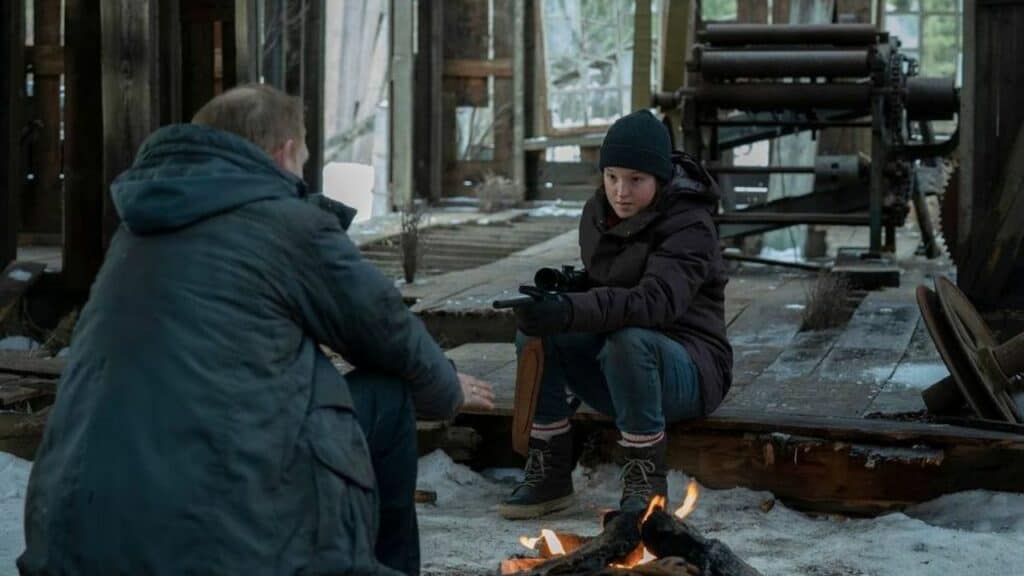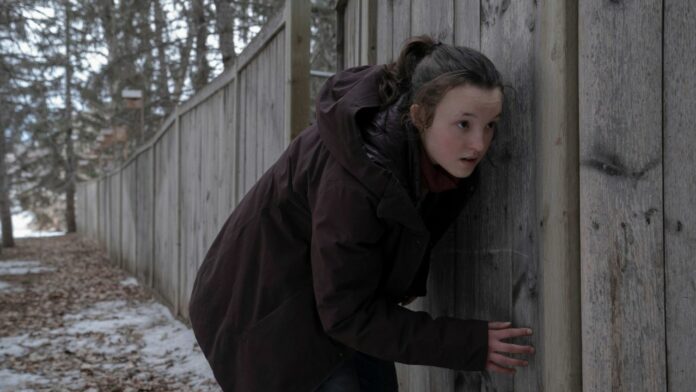In The Last of Us, Ellie’s poignant evolution from a sheltered youth to a perceptive survivor encapsulates the essence of growth and resilience in a world reclaimed by chaos.
In HBO’s adaptation of The Last of Us, the character arc of Ellie stands as a poignant narrative of growth and transformation.
From a state of relative innocence to a profound awareness of the harsh realities of her world, Ellie’s journey is a central pillar of the series.
This article explores the stages of Ellie’s character development, underscoring the significance of her evolution.
Innocence in a broken world
When viewers first meet Ellie in The Last of Us, she embodies a certain naivety, despite having been born into a post-apocalyptic world.
Her initial interactions are marked by a sense of curiosity and a relative unawareness of the full extent of the world’s brutality.
This innocence is exemplified in early episodes, where Ellie’s reactions to the world outside the quarantine zone display a mix of wonder and disbelief, revealing her lack of exposure to the outside world’s harsh realities.
Encounters with harsh truths
As Ellie travels with Joel, she confronts the brutal truths of the world they inhabit. Encounters with hostile survivors and the infected serve as jarring experiences that chip away at her innocence.
A strong example would be her encounter with David, the leader of a survivor group. Initially appearing benevolent, David’s true, sinister intentions are gradually revealed.

Ellie’s confrontation with David, especially when she learns about his group’s cannibalistic practices, is a disturbing revelation that shakes her to the core.
This encounter forces Ellie to face the depths of human depravity and the brutal lengths people will go to survive.
It’s a jarring experience that significantly erodes her innocence, illustrating the cruel complexities of their new world.
The burden of awareness
With growing awareness comes a burden. Ellie begins to grapple with the moral complexities of their world.
A poignant example of Ellie’s growing awareness of the harsh realities of their world is seen during a quiet moment after an intense encounter with hostile survivors.
Ellie, reflecting on the violence they had to perpetrate, questions the moral implications of their actions.
A shift to agency
As Ellie’s understanding deepens, so does her sense of agency. No longer merely a passive companion, she takes on more active roles in their survival.

A defining moment of Ellie’s shift to agency is vividly portrayed when Joel becomes gravely ill. In this critical phase of the story, Ellie takes on the role of caregiver and protector, a stark contrast to her earlier reliance on Joel.
Acceptance and resolve
Towards the end of the series, Ellie embodies a mix of acceptance and resolve. She accepts the world as it is, with all its cruelty and beauty, and resolves to find her place in it.
This maturity is beautifully captured in a moment where Ellie accepts that they have only seen what’s bad out there in this world. What matters to her more is that they have still made it.
In conclusion: Ellie’s evolutionary tale
Ellie’s journey in The Last of Us is a compelling narrative of growth. It’s a transformation from innocence to awareness, from a passive survivor to an active participant in her destiny.
Her evolution not only drives the plot forward but also provides a profound look into the process of coming of age in a world unlike any other.
Ellie’s character growth in The Last of Us is not just about survival; it’s a nuanced exploration of maturing in a world that offers harsh lessons, reflecting the resilience and adaptability of the human spirit.

